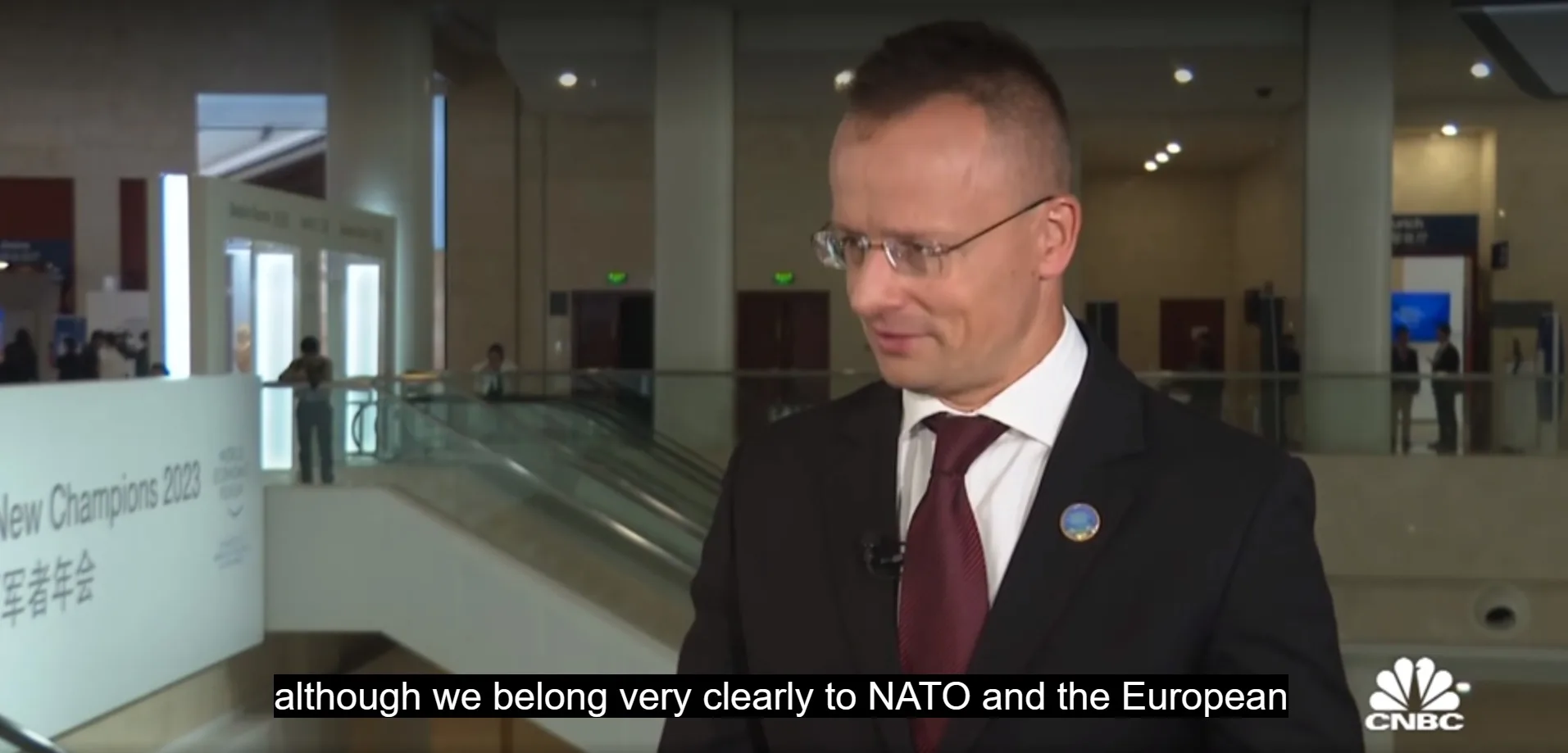Monitoring Desk: The Hungarian Foreign Minister Péter Szijjártó believes that China’s decoupling would be an act of ‘suicide’ for Europe.
“Both decoupling and de-risking would be a suicide committed by the European economy,” Szijjártó said to media, reports CNBC.
He added that since 2010, Hungary has had a policy of Eastern Opening that ensures trade flow to and from eastern countries and China is top of them though his country stays within the NATO-aligned policies.
He is of the view that European leaders have until now struggled to formulate a unified Sino-European strategy, with some states echoing U.S. calls for a complete dissociation with Beijing while others have preferred a softer, derisking approach.
Péter Szijjártó believes that curtailing ties with Beijing which is one of Europe’s biggest trade partners and a major source of foreign direct investment would essentially kill the region’s economy.
He calls for a sensitive balancing act for Europe, which remains deeply reliant on U.S. support in Ukraine but also has critical economic ties with Beijing.
Szijjártó, says Hungary holds more cordial relations with China than some of its European counterparts and it does not view China as a threat or a risk and therefore sees no reason for “de-risking.”
“We look at China as a country with which, if you cooperate, you can take a lot of benefit out of it,” he said.
It may be mentioned that China is the largest trading partner and investor in Hungary which sees Chinese foreign direct investment in the country to double this year, from 6.5 billion euros ($7.1 billion) to 13 billion euros.

The majority of last year’s inflow was due to a $7.6 billion investment — Hungary’s largest ever — by Chinese battery maker Contemporary Amperex Technology Co. Limited in a new factory in the country. The plant is expected to service automakers with factories in Hungary, including Mercedez Benz, BMW, and VW. Szijjártó said such investments highlighted Hungary’s critical role in Europe’s car manufacturing industry and its strategic importance in the region — particularly as automakers transition toward electric vehicles.
“These big Chinese investments come to Hungary because of the German carmakers being present in Hungary,” Szijjártó said.
His conversation with the media can be summed up as that the political atmosphere in Europe is very ideological and very emotional, and treating China as a rival is futile and European leaders should face reality instead of thinking just as friends and foes that is the traditional old mindset.
